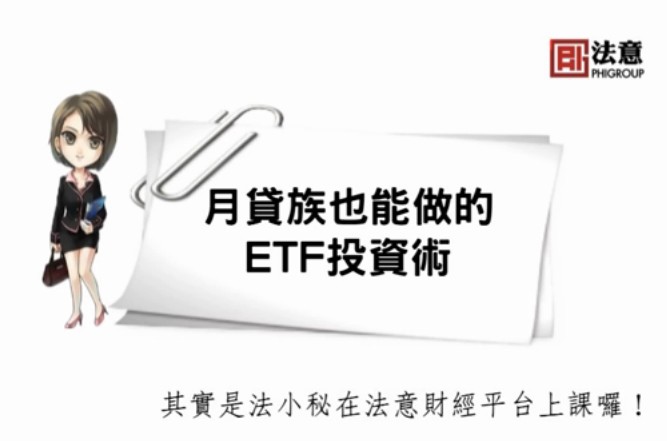評:經濟振興方案是全球趨勢,而且是各國都在盲目做的趨勢。全世界政府將有巨額負債。債券殖利率20年來走跌的趨勢將反轉。中國是澳洲最大的貿易夥伴,也是澳洲稅收大戶。是讓澳幣極盛而衰的重要角色。/Job

來源
Hey, big spender
嗨,敗家子
Feb 5th 2009 | SYDNEY
From The Economist print edition
Kevin Rudd shops for a recovery
陸克文重金買復蘇
HAVING inherited a booming economy when he led Australia’s Labor Party to power in late 2007, Kevin Rudd predicted optimistically last October that his country would avoid a recession during the global downturn. Now he is sounding more worried, and acting more defensively. This week he announced a stimulus package worth A$42 billion ($27 billion), one of the biggest in the country’s history. The government, he declared, would “move heaven and earth” to keep the economy growing. Barely a corner of Australian life will be untouched by the spending spree.
2007年底,當陸克文領導澳洲工党接手澳洲政權時,澳洲經濟還是一片繁榮景象,因此他在去年十月樂觀地預測,澳洲將(有幸)避免這次全球性的經濟衰退。現如今,他的發言聽來更令人憂慮,他的做法也更爲側重于防守。本周,他宣布了一項耗資420億澳元(約270億美元)的刺激(經濟)方案。這是澳州歷史上耗資金額最大的一項此類方案。他宣稱,政府將“竭盡全力地”保持經濟的增長。這項耗資巨大的經濟刺激方案幾乎觸及了澳人生活的方方面面。
Yet there is no guarantee it will achieve its aim. The immediate trigger for the stimulus was a Treasury report that the global recession had slashed A$115 billion from forecast revenue up to 2012. While six of Australia’s top ten export markets are already in recession, the chief impact has come from the slowdown in one that is not: China, its biggest trading partner, and the main driver of a minerals boom that has fed fat company-tax revenues. Such booms have worked magic to keep “the lucky country” out of trouble before. But not now. Lindsay Tanner, the finance minister, cites figures showing how much Australia had come to depend on such revenues, and the shock when they abruptly fade away: at the latest boom’s peak, company taxes had grown to a quarter of federal revenue, from just 9% in the mid-1980s.
然而,該項經濟刺激方案能否達到其既定的目標還是個未知數。導致該經濟刺激方案出臺的最直接誘因是財政部的一份報告,該報告稱,因受全球經濟衰退影響,可預見至2012年,(澳洲)經濟收入將共計减少1150億澳元。雖然澳洲十大出口市場中有六大出口市場都遭受經濟衰退的影響,但對澳洲經濟最致命的一擊還是來自于中國市場(幷非六大受影響市場之一)的萎縮。中國是澳洲最大的貿易夥伴,也是澳洲稅收大戶 – 澳洲礦業繁榮昌盛的主要原動力。正是礦業的繁榮神奇地使這“幸運國度”在全球經濟衰退的最初沒有受到影響。然而現在情况却不同了。財長林賽•唐納(Lindsay Tanner)引用的數據顯示出澳洲(經濟)在多大程度上依賴著這種(譯者注:指礦業)收入,以及礦業收入的驟减對澳洲經濟的創傷有多大:在最近一次礦業鼎盛時期,企業稅占聯邦稅收總收入的比例,從八十年代的9%,增長爲25%。
Growth forecasts for 2008-09 have now slid from 2.75% in last May’s budget to 1%, and to just 0.75% for next year. Mr Tanner concedes such figures are a bit “anaemic”, but says the chances of staying out of recession are still “reasonable”. Some economists are less optimistic. The test will be whether Mr Rudd’s stimulus has the right targets. About a third will go in cash handouts of almost A$1,000 each to encourage low- and middle-income workers, farmers and students to spend. A similar stimulus of A$10.4 billion late last year seems to have worked: after two months of weak demand, it helped push retail spending in December up by 3.8%.
(政府對)08-09年度的經濟增長預測從去年五月份預算的2.75%,下降爲1%,且預測明年的增長僅爲0.75%。唐納先生坦言,這樣的數據的確有點兒“令人沮喪”,但同時也表示,(澳洲經濟)還是“相當”有可能置身于經濟危機之外。而其他的經濟學家則沒有這麽樂觀。陸克文的經濟刺激方案所面臨的考驗是該方案是否針對了正確的人群。爲鼓勵中低收入的上班族、農民和學生消費,政府將每人發放近1千澳元的現金,這約占刺激方案總額的1/3。去年年底,一項耗資104億澳元的同類刺激方案似乎頗有成效:在消費低迷了兩個月後,該方案助零售業12月份的銷售額增長了3.8%。
But the bulk of Mr Rudd’s stimulus, almost A$30 billion, will go on infrastructure: new school buildings, road repairs and house insulation. And more is on the way. A body Mr Rudd appointed under Sir Rod Eddington, a businessman, is due to report soon on much bigger demands for public cash, such as for railways, ports and energy grids. Already, the revenue slump and stimulus spending have ended more than a decade of budget surpluses; the latest estimates project combined deficits of A$118 billion over the next four years.
然而,該方案的很大一部分,約300億澳元,將流向基礎設施建設:建新校舍、維修公路、爲房屋安裝隔熱層。而且其他更多的用途還在計劃中。陸克文所指定某隸屬于Sir Rod Eddington(商人)的機構將于近期上報更多需要公共資金的項目,如鐵路、港口和電站。目前,稅收减少,以及刺激(經濟)方案的支出已耗盡十年(累計)的政府預算盈餘。最新的預測顯示,新出臺的方案將令澳洲在未來四年內背上1180億澳元的負債。
On January 31st Mr Rudd prepared the ideological ground for this shift with a much-discussed article in the Monthly, a magazine. He blamed the global crisis on neoliberalism, or “free-market fundamentalism—and excessive greed”. Social democracy, he wrote, must now “prevent liberal capitalism from cannibalising itself”. This was also about claiming the political high ground. Mr Rudd accused the Liberal Party, the main opposition party, which ruled for 11 years before the crisis, of being Australia’s neoliberals. Malcolm Turnbull, the Liberal leader, wants tax cuts, not public spending, to boost the economy, and opposes the stimulus package.
1月31日,陸克文在《月刊》雜志上發表了一片備受爭議的文章,爲推行這一刺激方案作了思想鋪墊。他將此次全球金融危機歸罪于新自由主義(neoliberalism),也即“自由市場原教主 (free-market fundamentalism),以及貪婪無度。”他寫道,社會民主主義(Social democracy)現在必須“阻止自由資本主義蠶食它自己”。這一做法同時也是爲占領政治高地。自由黨是工黨的最大的反對黨,在經濟危機之前執政澳洲長達11年。陸克文指責自由黨正是澳洲的新自由主義者。自由党領袖馬爾科姆•特恩布爾(Malcolm Turnbull)反對該刺激方案,希望采取减稅而非公用事業開支來推動經濟。
The central bank cut interest rates by a percentage point to a cash rate of 3.25% on the day Mr Rudd announced his stimulus, the fifth cut since September. Glenn Stevens, the bank’s governor, says the monetary and fiscal changes will help to “cushion” the economy. If Australia nonetheless goes into recession, Mr Rudd and Mr Turnbull will keep trading charges on who is to blame: neoliberals or big spenders.
在陸克文宣布其刺激方案的當天,央行宣布降低基準利率100個基點,降爲3.25%,這是自(去年)九月以來的第五次降息。央行行長格林•斯蒂芬(Glenn Stevens)表示,貨幣和財政(政策)的變化將有助于“緩和”經濟(將遭受的影響)。如果澳洲最終難逃衰退的厄運,那特恩布爾就可以和陸克文換個位置來追究誰才是罪魁禍首:新自由主義,還是敗家子。
譯者:icetea
- Feb 14 Sat 2009 17:27
經濟學人:澳洲經濟刺激方案Australia’s economic stimulus
close
全站熱搜
 留言列表
留言列表
發表留言


 留言列表
留言列表
